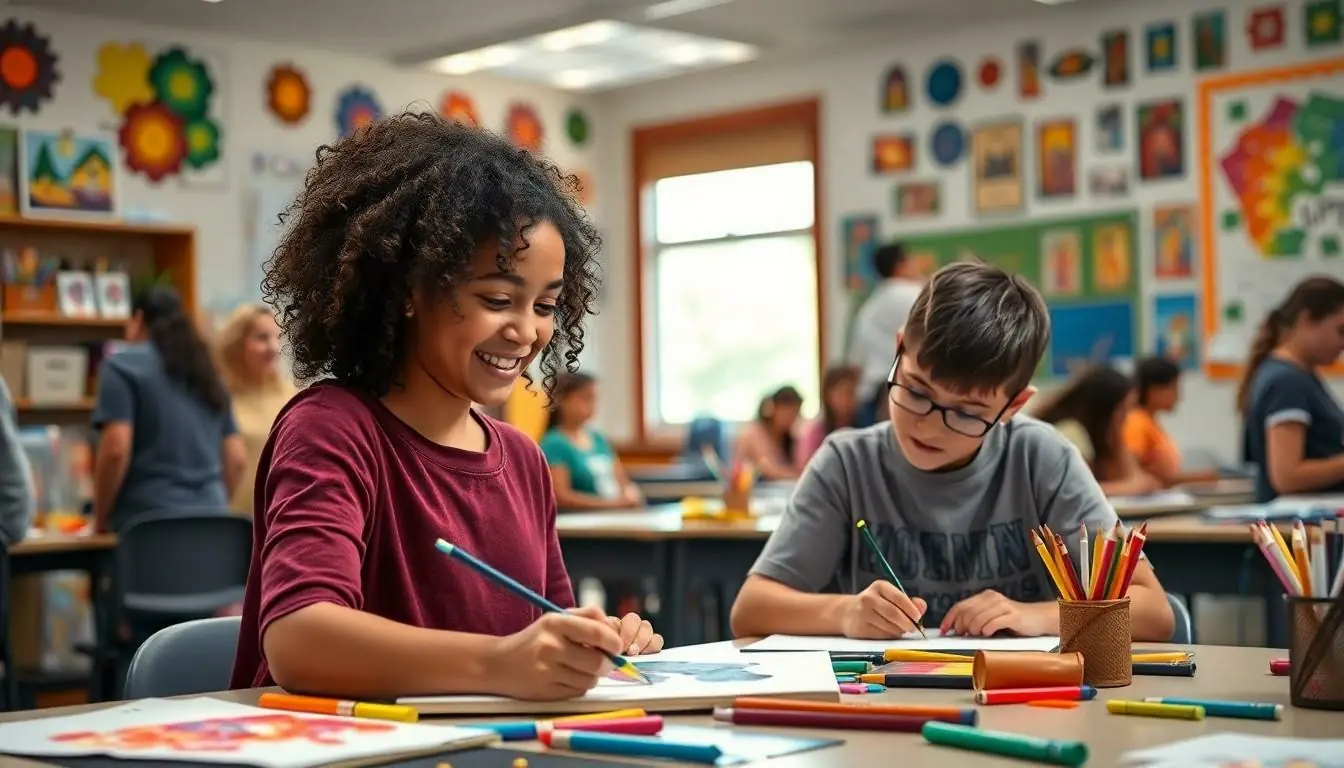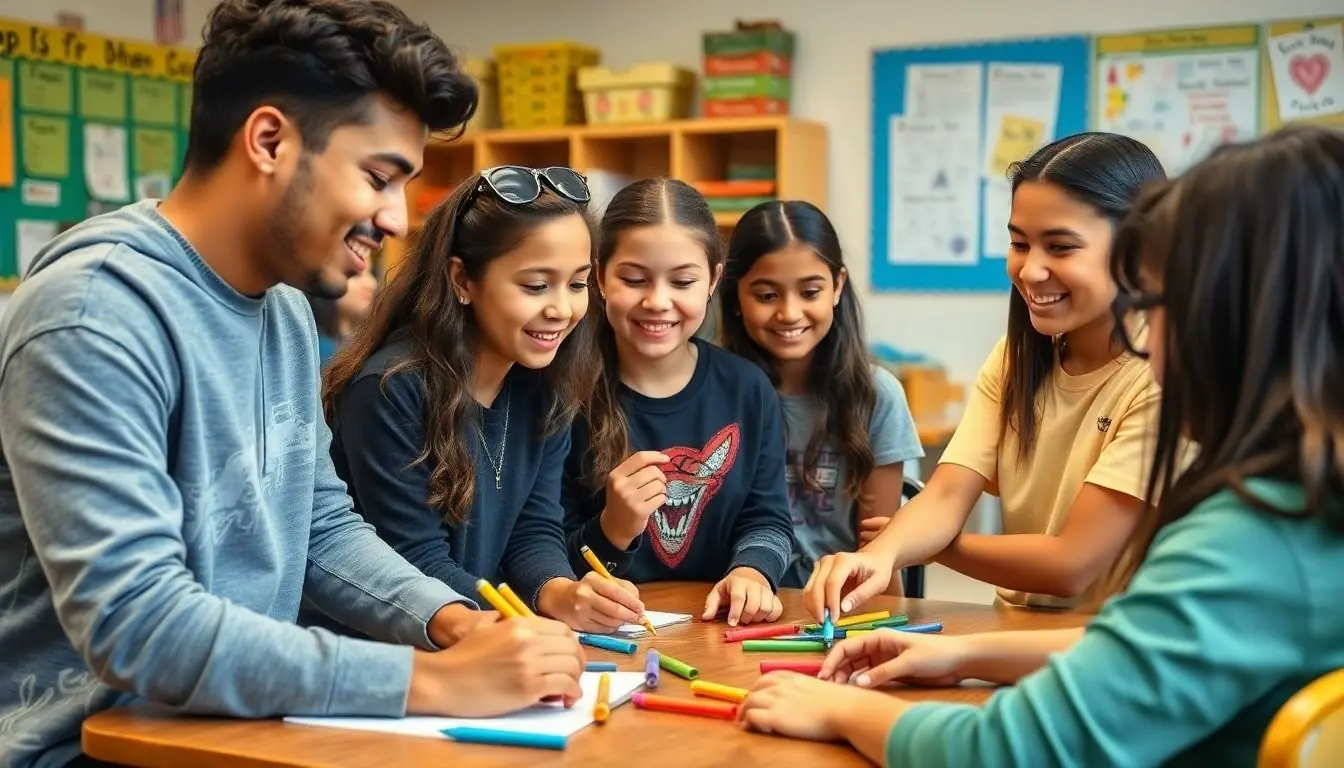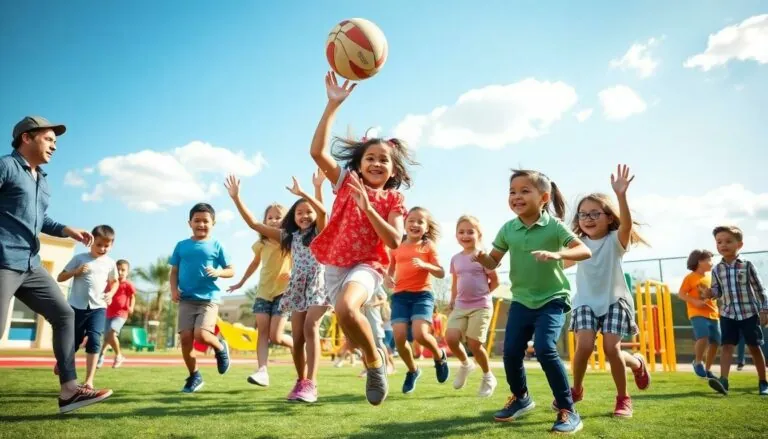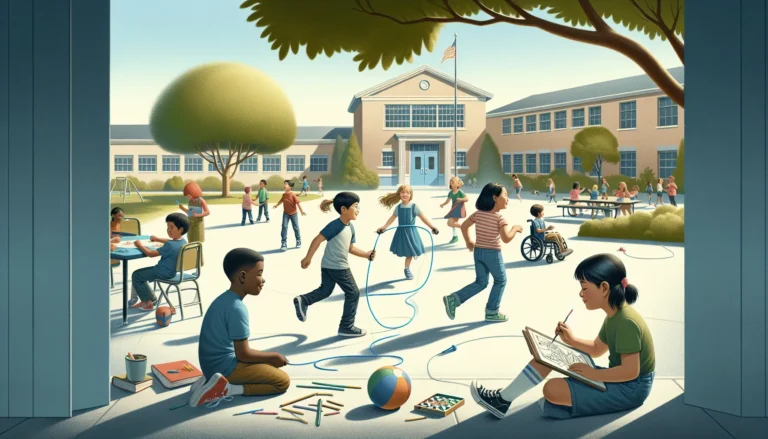When traditional education feels more like a prison than a path to success, alternative schools for troubled youth step in like a superhero in a cape—minus the spandex. These unique institutions cater to students who need a little extra help, offering tailored programs that meet their individual needs. It’s not just about academics; it’s about creating an environment where young people can thrive, learn, and maybe even rediscover their love for learning.
Imagine a place where students can express themselves without fear of judgment, while also gaining valuable life skills. Alternative schools focus on building confidence and resilience, turning troubled teens into empowered young adults. With innovative teaching methods and a supportive community, these schools provide a fresh start and a new outlook on life. Who knew that education could be this exciting?
Table of Contents
ToggleOverview Of Alternative Schools
Alternative schools serve as effective educational environments tailored for troubled youth. These institutions cater to students who often find traditional education unresponsive to their needs. Individualized learning plans support diverse learning styles, making education accessible.
Students in alternative schools frequently engage in smaller class sizes, fostering personal attention from educators. This personalized approach enhances academic achievement while promoting life skills. Many programs incorporate social-emotional learning, crucial for building resilience and self-awareness.
Facilitation of various teaching methods also distinguishes alternative schools. Experiential learning, project-based assignments, and creative arts classes allow students to explore interests outside standard curricula. As a result, this approach sustains student motivation and re-engages them in the educational process.
Support systems play a vital role in these schools. Mentorship programs connect students with caring adults who guide them through challenges. Counseling services address mental health concerns, facilitating overall well-being.
Alternative schools frequently emphasize community involvement and partnerships. Collaborative projects with local organizations provide students with real-world experiences. Such initiatives enhance social skills while reinforcing the relevance of education.
Many alternative schools also focus on preparing students for future success beyond academics. Vocational training and life skills programs equip students with essential tools for independent living. This comprehensive focus ensures students exit with both academic credentials and practical skills.
Overall, alternative schools create conducive environments for personal growth, academic success, and community engagement.
Characteristics Of Troubled Youth
Troubled youth often exhibit a range of unique characteristics. Understanding these traits helps in crafting effective support strategies within alternative schools.
Emotional And Behavioral Challenges
Emotional challenges frequently manifest as anxiety, depression, or anger. Behaviors such as aggression, defiance, or withdrawal may hinder interactions with peers and authority figures. Attachment issues often complicate relationships, leading to difficulties in trust and communication. Feelings of isolation can exacerbate these emotional challenges, resulting in a cycle of disengagement and frustration. Supportive environments, like those found in alternative schools, provide essential focus on social-emotional learning and interpersonal skills. Counseling services effectively address these issues, fostering resilience and coping strategies for troubled youth.
Academic Difficulties
Academic difficulties often stem from various factors influencing a student’s ability to learn. Many struggle with attention deficits, making it hard to concentrate in traditional classroom settings. Grades may reflect a lack of engagement rather than an absence of intelligence or capability. Academic gaps can widen over time without appropriate intervention and support. Alternative schools address these challenges through personalized learning plans and small class sizes. These strategies create opportunities for tailored instruction, enhancing understanding and retention. By focusing on students’ unique learning styles, these institutions can rebuild confidence in their academic abilities.
Types Of Alternative Schools
Various types of alternative schools cater to the unique needs of troubled youth. These institutions emphasize different educational approaches, ensuring comprehensive support.
Therapeutic Schools
Therapeutic schools focus on students’ emotional and psychological needs. Counseling and therapy sessions integrate seamlessly into the curriculum. By addressing underlying issues, these schools foster healing and personal growth. Students often participate in daily therapeutic activities that encourage self-reflection and emotional regulation. The supportive staff helps create a safe environment for challenging emotions.
Charter Schools
Charter schools offer specialized programs tailored to diverse learning styles. Often more flexible than traditional public schools, they implement innovative teaching methods. These schools promote individualized education plans, allowing teachers to address specific student needs. Regular assessments help track progress and adjust instructional strategies. Parent and community involvement remains a cornerstone, fostering collaboration among all stakeholders.
Residential Treatment Centers
Residential treatment centers provide intensive support for troubled youth needing 24-hour care. Mental health professionals deliver specialized treatment, combining education with therapeutic practices. Students typically engage in structured routines that promote stability and responsibility. Life skills training complements academic courses, preparing students for successful futures. This holistic approach addresses both educational and emotional development.
Benefits Of Alternative Schools For Troubled Youth
Alternative schools offer distinct advantages for troubled youth, focusing on their unique needs and fostering a supportive atmosphere for personal and academic growth.
Personalized Learning Environments
Personalized learning environments create tailored educational experiences. Smaller class sizes enable instructors to provide individual attention, ensuring that students receive the support they require. Furthermore, these schools develop individualized learning plans that cater to diverse learning styles, promoting self-paced progression. Students actively engage with materials that resonate with their interests, revitalizing motivation and enthusiasm for learning. These adjustments allow students to rebuild their confidence by addressing specific academic challenges, thereby enhancing comprehension and retention.
Supportive Therapeutic Interventions
Supportive therapeutic interventions play a crucial role in alternative schools. Counseling services address emotional and behavioral challenges, helping students develop resilience and coping strategies. Additionally, social-emotional learning programs integrate therapeutic techniques into daily activities, fostering healthy relationships and emotional well-being. Mentorship initiatives provide students with positive role models, guiding them through personal struggles. These comprehensive interventions ensure that students are equipped with tools to navigate their challenges effectively, enhancing their overall development and academic performance.
Challenges And Considerations
Alternative schools for troubled youth face various challenges that impact their effectiveness and accessibility. Understanding these obstacles helps stakeholders make informed decisions.
Stigma Around Alternative Education
Stigma often surrounds alternative education, as some view these institutions as last resorts for students deemed unfit for traditional settings. Misconceptions can perpetuate negative perceptions, leading to social isolation of students. Many parents and educators may hesitate to consider alternative schools due to concerns about quality or reputation. Addressing these beliefs involves showcasing the success stories of students who thrive in these unique environments. Creating awareness through community events and open houses can help change perspectives and promote understanding.
Funding And Resources
Funding remains a critical challenge for alternative schools, with many operating on tight budgets. Limited financial resources can restrict access to essential programs and services. Schools often rely on state funding, grants, and donations to sustain operations and improve facilities. Competing for funding against traditional public schools adds to the difficulty. Collaborating with local businesses and organizations can enhance resources and create partnerships that strengthen educational offerings. By leveraging community support, alternative schools can secure necessary funding to provide effective programs for troubled youth.
Conclusion
Alternative schools for troubled youth play a crucial role in reshaping educational experiences. By focusing on individual needs and fostering supportive environments, these institutions empower students to overcome challenges and rediscover their potential.
Through innovative teaching methods and a strong emphasis on social-emotional learning, students are not only prepared academically but also equipped with essential life skills. The dedication to personal growth and community involvement creates a foundation for lasting success.
As awareness increases and misconceptions are challenged, alternative schools can continue to thrive, providing transformative opportunities for young individuals seeking a brighter future.





